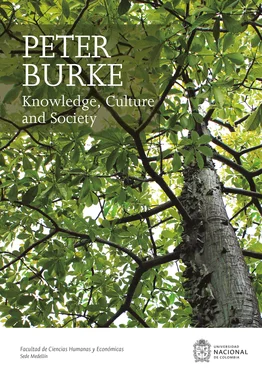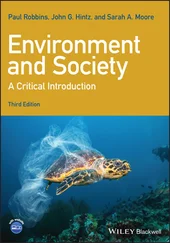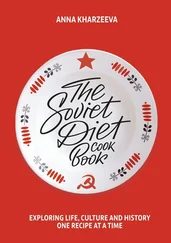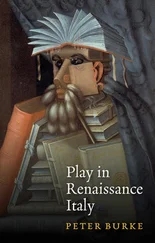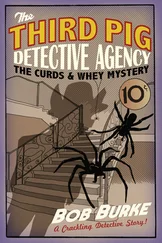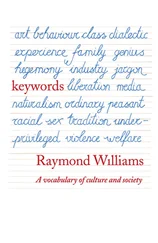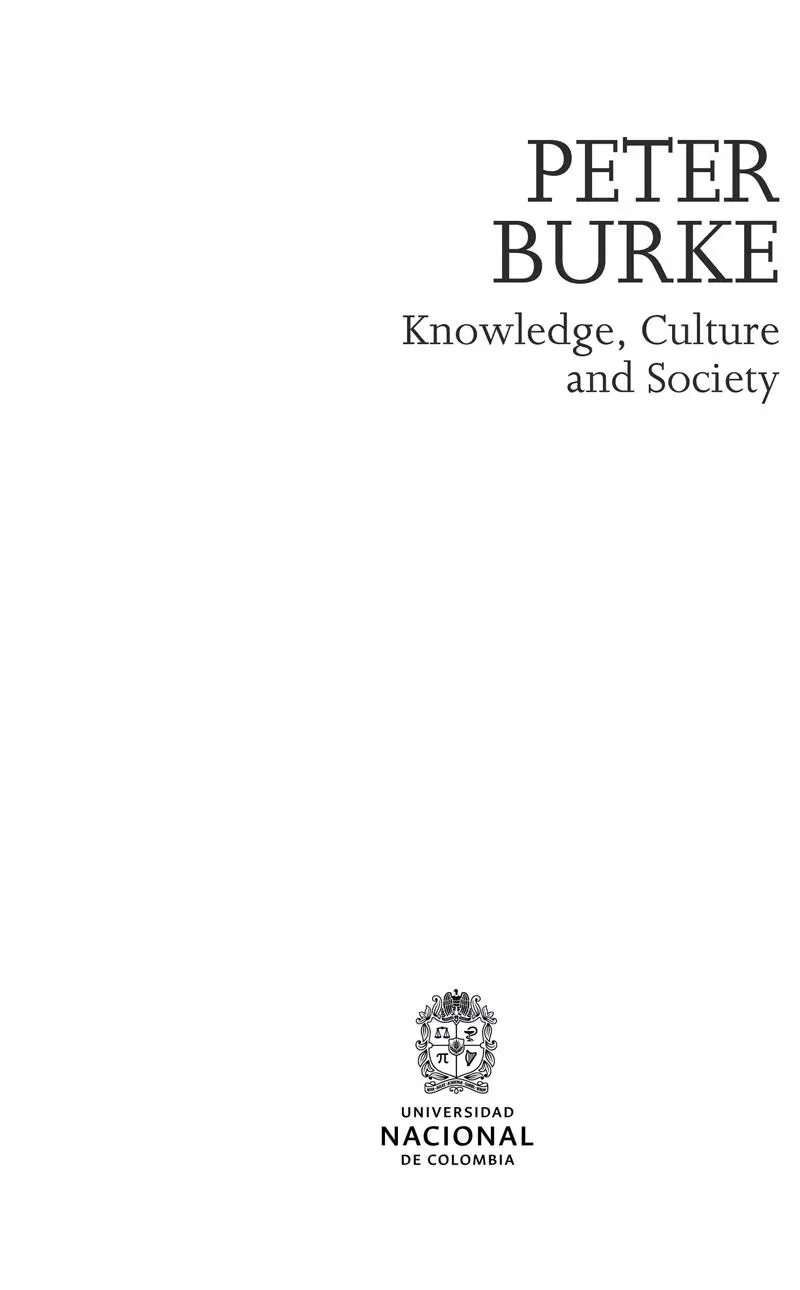
Knowledge, culture and society
©Universidad Nacional de Colombia - Sede Medellín
Facultad de Ciencias Humanas y Económicas
Centro Editorial
ISBN: 978-958-783-133-7 (Paper)
ISBN: 978-958-783-134-4 (Digital)
ISBN: 978-958-783-135-1 (POD)
First Edition
Medellín, 2017
Editorial Preparation
Centro Editorial Facultad Ciencias Humanas y Económicas
Revision and translation of accompanying text: Adriana Pertuz
Layout: Melissa Gaviria Henao
Front cover photo: José Luis Ruiz Peláez
Inside photos: Yobenj Aucardo Chicangana-Bayona
Conversion to ePub
Mákina Editorial
https://makinaeditorial.com/
All rights reserved. No part of this publication may be reproduced in any form or by any means, without the prior permission in writing of Facultad de Ciencias Humanas y Económicas de la Universidad Nacional de Colombia - Sede Medellín.
306.42
B87 Burke, Peter, 1937-
Knowledge, culture and society / Peter Burke. – Medellín : Universidad Nacional de Colombia. Facultad de Ciencias Humanas y Económicas, 2020.
1 recurso en línea (175 páginas) : ilustraciones.
ISBN : 978-958-783-134-4
1. SOCIOLOGÍA DEL CONOCIMIENTO. 2. CONOCIMIENTO. 3. CULTURA. 4. SOCIOLOGÍA. 5. SOCIOLOGÍA HISTÓRICA.I. Título.
Catalogación en la publicación Universidad Nacional de Colombia. Sede Medellín
CONTENTS
During the Warring States period in China, Chuang Tzu was summoned by a king to paint a crab. In order to accomplish such an enterprise, he requested from the monarch time, housing, food and servants for five years. However, as time passed, there wasn’t even a sketch of the drawing, and Chuang Tzu still required five more years of royal subsidies to complete his project. Finally, the king questioned the painter, who, consumed by time and approaching his death, gave him the most perfect and beautiful drawing ever seen on earth.
Even if the fable alludes to a critical reflection about highly complex art, it turns out to be perfect for the work of human, social and economic sciences in general. How is knowledge measured? How long does it take us to reflect on something and how long to express our thoughts? Perhaps it takes some longer than others, but the difference doesn’t allow us to qualify anyone as better or worse, nor to catalogue those for whom reading takes longer, or whose process takes more time as less intelligent.
Such is the dilemma that the human, social and economic sciences go through, since they face the challenge of understanding complex processes when confronting the urgency of standards, measurements and forms of qualitative and quantitative evaluation that respond to notions of utility, productivity and viability, defined within social, cultural and political realities discordant with those models.
In its 40 years of existence, thought, and creation, the Faculty of Human and Economical Sciences (FCHE) decided to take a fundamental academic event as a stepping stone: an event rooted in the passion for history, political and human sciences of one of the most influential masters of contemporary history, whose life is an example of commitment to questioning and re-thinking the world. Professor Peter Burke was not only an obvious, but also a necessary choice to attract our attention as an academic community, to make us turn to ourselves and think about what we do, how we do it and how we teach others to do it.
Professor Peter Burke not only has authored circa 372 publications, among books, chapters of books and published articles, but his work has also been translated into 36 languages, positioning him as one of the principal and most influential British historians of our time. He is an exponent of new cultural history and his contributions have allowed the comprehension of different perspectives about the Renaissance and Modern History.
During Professor Burke’s stay in Medellín in 2015, the event “Peter Burke, Contextos del Conocimiento” took place: a space of reflection, not only about the History of Knowledge, but also about Sociology, Anthropology, and Geopolitics of Knowledge. He imparted the inaugural lecture to the Faculty’s postgraduate department, entitled “¿Más allá de la Nueva Historia Cultural?” (Beyond New Cultural History?); thus, opening a space for reflection about social and human sciences in the contemporary world for the new master and doctoral students.
The current book: Peter Burke. Knowledge, Culture, and Society, compiles a series of conferences given by Peter Burke during his visit to Medellín, but also includes some unpublished works. It constitutes the first publication in English by the Editorial Center of the Faculty, aimed at the internationalization of our programs and to support the acquisition of a second language. It is also one of three publications commemorating the FCHE’s 40th Anniversary: the historical review 40 Años Creciendo, Escribiendo y Publicando, the Historia de la Facultad de Ciencias Humanas y Económicas (1975-2015), and now, this academic jewel that encourages the reflection upon our disciplines and the sources that support us as academics and researchers.
The support of the Campus Vice Principal, Professor Dr. John Willian Branch Bedoya, and the Academic Director, Professor Dra. Diana Luz Ceballos, was essential to accomplish both the event and the publishing of this book, and we thank them deeply. Likewise, we express our most sincere thanks to the Biblioteca Pública Piloto de Medellín, to its then director, Gloria Inés Palomino, and to its comunicaciones y extensión team, for always supporting our academic projects, which benefit the creation and spread of knowledge in the city.
I hope that Peter Burke. Knowledge, Culture, and Society provides the tools for an interdisciplinary discussion about knowledge in the social and human sciences today, as well as important considerations about the research and methodological challenges posed to us every day.
Yobenj Aucardo Chicangana-Bayona
Decano
SYMBOLISM AND KNOWLEDGE: THE CULTURE CIRCUIT 1
Diana L. Ceballos Gómez 2
1.
Professor Burke’s work has left a mark on many academics’ research work in the world and in our Latin-American academic institutes, and although I won’t speak directly about his important and recognized work, it will of course be implicitly present in this text, because it was fundamental in my doctoral training, when, searching for literature about the Modern Age in the University of Tübingen’s library, I found Professor Burke’s writings and, especially, three books that were closely related to my research: Popular Culture in Modern Europe, Reden und Schweigen (Speaking and Silence) and Küchenlatein (Kitchen Latin). 3In them, Burke reflects on the role of language and the symbolic universe in culture and, therefore, in historical and cultural analysis 4.
When completing my history studies at the Universidad Nacional de Colombia in the late 80s and early 90s, I only had the chance to study some of his texts in a fragmentary way; back then, the circulation of books and texts was restricted (even more so in a country like Colombia), and paper was the only available medium, implying high costs, imports or subscriptions to specialized journals, which our universities couldn’t afford. Today, things have changed a lot, as has the research landscape in our country, and, thanks to new technologies, it’s possible to access, expeditiously and at a lower cost - or even at no cost - an entire treasure of knowledge, 5due to policies of open access and virtual archives, which have been built all around the world, and to the increased use of TICs in our daily life, as Professor Burke has shown in works such as A Social History of Knowledge. I: From Gutenberg to Diderot, and A Social History of Knowledge. II: From the Encyclopaedia to Wikipedia. 6
Читать дальше
